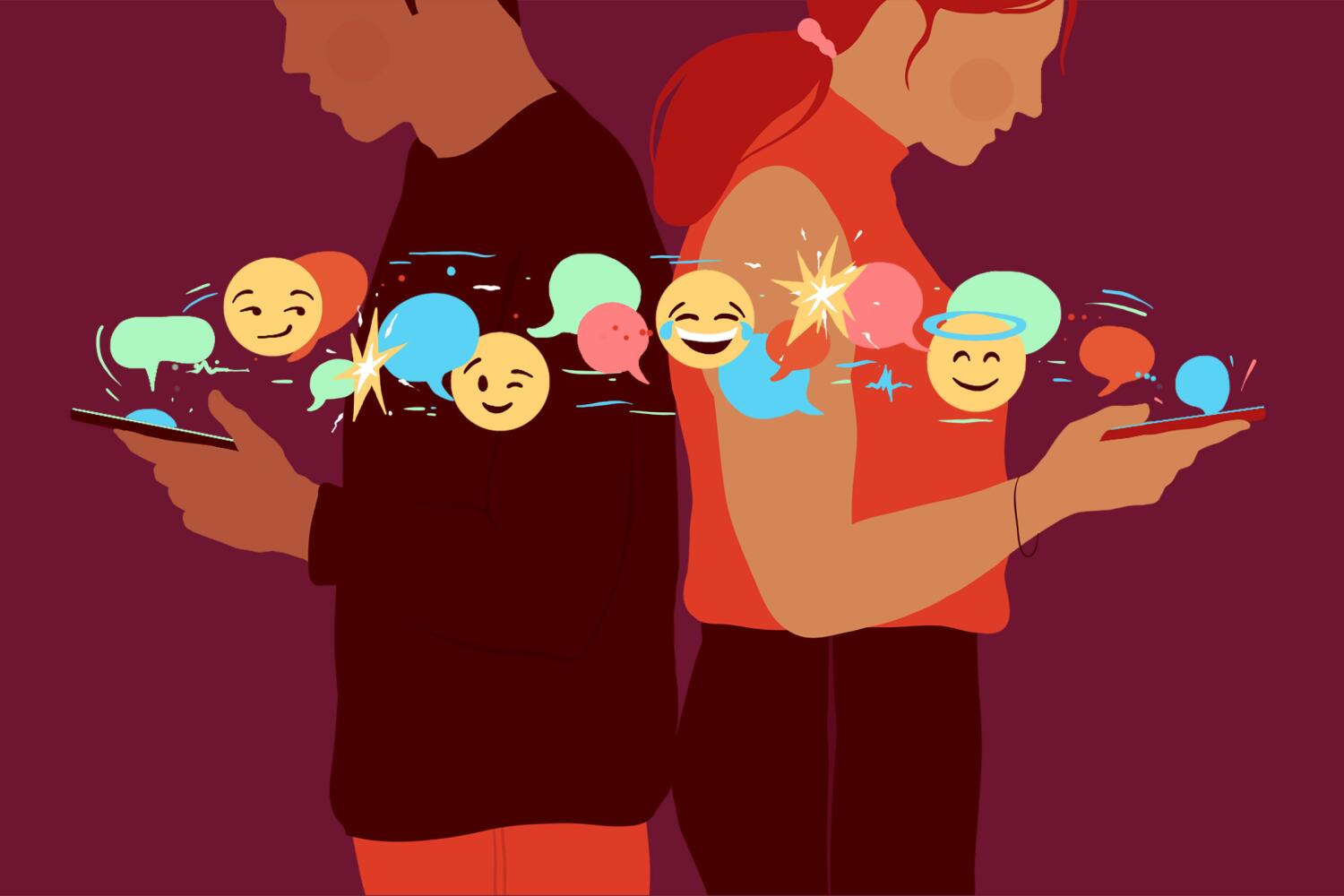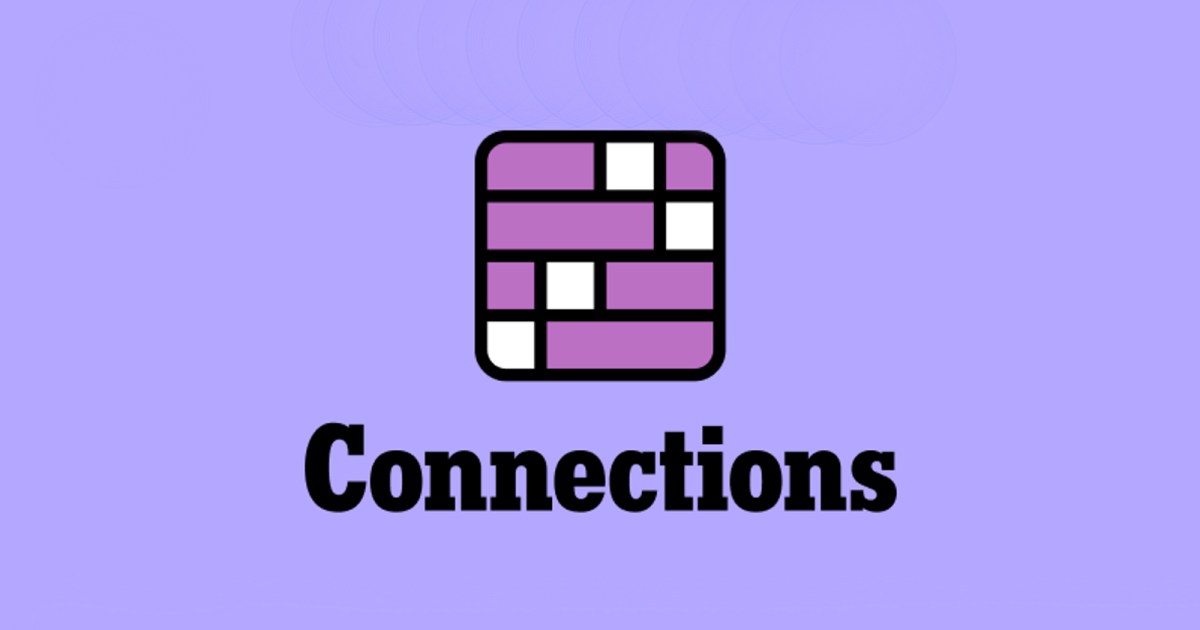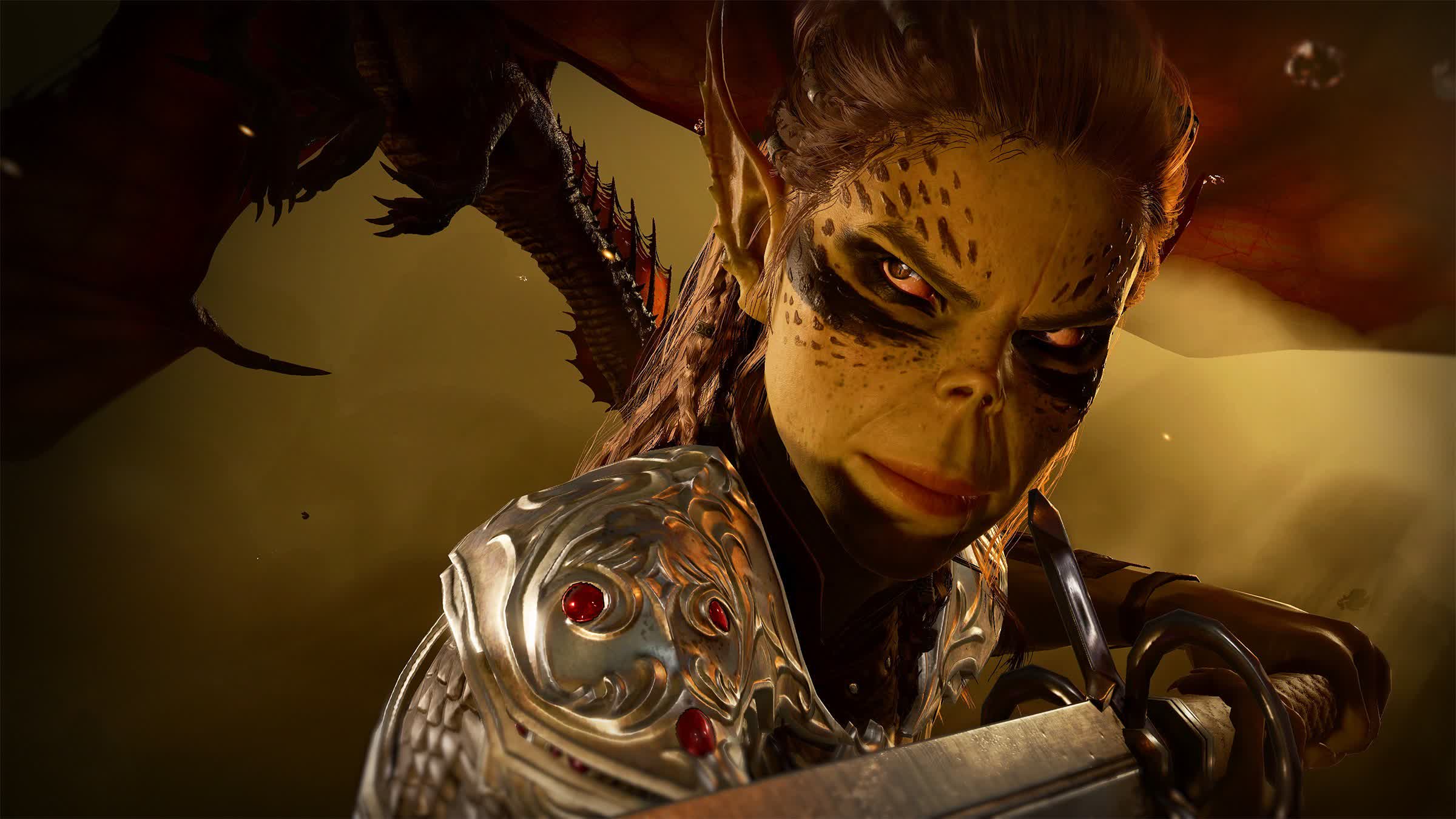[ad_1]

“Looking for banter!”
It’s a dating app standard, among the Billboard Hot 100 of bio banality. Along with a passion for food, travel, plants and “The Office” (yes, still), the ability to banter, whatever that may mean, has become a common prerequisite for earning someone’s swipe right.
The number of U.S. Tinder users who listed “banter” on their profiles has grown by nearly 7% since 2022, with the word appearing significantly more often in bios of men who are 33 or older than women of the same age, according to Tinder spokesperson Tomas Iriarte Reyes. Countless articles provide prompts and advice on how to amp up the banter on dating apps. Reddit threads help introverts banter like the pros or suggest ways one can boost a conversation’s banter quotient. The fictional dating app in Apple TV’s “Ted Lasso” is even called Bantr.
But what is banter really? And what is it good for?
Sex educator Shan Boodram, Bumble’s resident sex and relationships expert and workshop facilitator on Netflix’s UK-based dating show “Too Hot to Handle,” notes that the word “banter” is thrown around more frequently in the UK. The popularity of British reality shows like “Too Hot to Handle” and “Love Island” may have contributed to the word’s adoption stateside.
Boodram says that banter encompasses two of the most consistent factors that contribute to a relationship’s longevity. “Agreeableness and willingness to meet each other’s bids,” she says. She explains the latter as “You scratch my back and I will scratch yours. In 2023, this also means you watch my saved TikTok with interest, and I will watch yours.”
The majority of roughly 100 dating app users I surveyed about banter using an online form noted that the presence of a quick back-and-forth established intellectual parity, comedic compatibility and similar interests. It’s a way to test boundaries, casually introduce personal details that may be deal-breakers and create intimacy. Even those who didn’t explicitly look for bios that mentioned banter wanted everything that banter represents. About a third said they preferred bios that included the term. Boodram explains that just like our animal kingdom peers whose mating rituals include funny little dances and call-and-response trills, we’ve concocted our own ways to signal interest and push for reciprocity through play.
“It’s romance movie terminology,” says Erin Carlon, author of “I’ll Have What She’s Having,” a deep-dive into the Nora Ephron canon. She explains that as romance novels boomed in popularity over the pandemic, the language they employed seeped into the general cultural consciousness, and in turn, onto dating apps. That, along with movies like Ephron’s “You’ve Got Mail” and “When Harry Met Sally” and later cruder comedies like “Wedding Crashers” and “Anchorman: The Legend of Ron Burgundy” led Gen-Xers and millennials to believe that we crave, and could even have, the verbal dexterity and impeccable rapport of scripted characters.
At its most thrilling, banter mimics the buildup and climax of good sex. According to Carlson, tension-filled banter was Hollywood’s answer to the enactment of puritanical movie production guidelines in the 1930s — if sex itself was a no-go, charged dialogue was the next best thing.
It’s “sex without having sex,” says Christopher Cartmill, the head of dramaturgy at Rutgers University. He points to the 1980s television show “Moonlighting” and its equally chatty 1940s cinematic predecessor “His Girl Friday” (and Shakespeare’s “Taming of the Shrew”) as examples of hardcore badinage serving as a viable substitute for the boudoir.
In those examples, the straight couples proved their attentiveness through their quick wit and evenly matched cruelty. It’s two proud people conceding that they’ve found the one person who can see through their steely exterior. And the result can be better than sex.
Which, if you’re an asexual like Alexis Bates, 26, of Waco, Texas, is part of banter’s appeal. She explains that she and her current “datemate” will fake fights and improv their way through an argument to reach mutual release. However, she adds, there’s no ill will. In fact, their openness to poke fun at each other and be goofy and vulnerable is a testament to the safety and kinship they’ve found in each other. “It’s cathartic,” she says. “The body registers that we’ve argued, we’ve had these little skirmishes, and we’re fine. It continues to build the healthy relationship.”
Despite its omnipresence on dating apps, banter isn’t inherently flirtatious or sexual. The Oxford English Dictionary defines it as “mocking, humorous, or arch remarks made about people or things to expose their shortcomings and to make them appear laughable; humorous ridicule; (also) good-humoured teasing or raillery, witty or amusing repartee.” And nearly all respondents to my survey wrote that outside of dating apps, they bantered with friends, family or colleagues (or all the above). It’s a catchall term used to describe everything from a team’s locker room dynamics, to gossip at a middle school girl’s sleepover, to a comedian’s crowd work, to Aaron Sorkin’s workplace dialogue, to the chummy buffoonery of “Seinfeld.”
Which makes asking for banter on a dating app something of a guessing game. Are men looking for a shrewd dame with a wickedly sharp sense of humor and a dynamite body, are they looking for the Pam to their Jim, a co-conspirator for life who’s goofy and charming, or are they looking for a “cool girl,” what Gillian Flynn describes in “Gone Girl” as a “funny woman who adores football, poker, dirty jokes, and burping, who plays video games, drinks cheap beer, loves threesomes and anal sex.”
Maybe what they really want is a true friend. And given that there’s been a drastic decline since 1990 in the number of close friendships men have, it makes sense that they’d ask for the same buddy-buddy ribbing where it’s easiest to search for new connections.
Or maybe they’re looking for all four in one.
Studies researching humor and romance in heterosexual relationships have found that both men and women view having a sense of humor as an asset. Hinge’s love and connection expert, therapist Moe Ari Brown, says that “92% of Hinge daters consider a shared sense of humor to be an important factor when considering being in a relationship with someone.”
But a sense of humor doesn’t mean the same thing for everyone. According to a 2015 study published in “Evolutionary Psychology,” which replicated a 2006 study, men seem to want women who will laugh at their jokes and women want men who will make them laugh. (I’ve even seen men write that they’re “looking for someone to laugh at my jokes” in their bios, and survey respondents who do not limit their dating app parameters by gender noticed this sentiment far less frequently among women and nonbinary users.)
“When guys are like ‘I’m funny’ in their bios, I’m like, ‘Let me be the judge of that,’” says Kate Parrish, a 38-year-old straight woman from Nashville, Tennessee who relies on Bumble for finding dates. She says that since joining dating apps after her divorce, she’s become well acquainted with matches who articulate that they’re looking for sparky dialogue but can’t carry their own weight. Still, she says she prefers men who mention banter in the profiles.
“I suspect that a lot of men who write that they want someone with good banter and a good sense of humor are actually saying that they want someone to enthusiastically talk about what they’re interested in and who laugh at their jokes even if they are offensive,” says Boodram. (Donald Trump excused the pussy grabbing comments he made on Access Hollywood in 2016 as “locker room banter,” and bullying in the workplace, at school and in the sports arena underscores a widespread willingness to excuse derogatory humor as “banter.”)
Like Parrish, I found that many men who said we had good banter were delusional in believing that they had any part in it. Our conversations weren’t so much the stuff of “Moonlighting” fan fiction as they were a game of T-ball. I’d unloaded the plastic stand, bases and mesh bag of balls from the trunk of my car, handed them the bat, and said “go get ‘em slugger” before tossing them a slow pitch. They’d hit it and name themselves MVP.
Alas, I too had once included “banter” on my profile, something of a bat signal to liberal arts majors. I’d seen it on the profiles of the kinds of men I’d wanted to match with and thought maybe if they saw that it were in my bio too, they’d identify me as a kindred spirit. Just two chatty daters with a penchant for sex jokes, bad puns and blink-or-you’ll-miss-it cultural references. I wanted the Harry to my Sally and asked for the one thing I knew I could deliver.
It didn’t work.
Ultimately, “banter” is nothing more than a buzzword, the 2024 answer to the “sapiosexual” craze where online daters peacocked their degrees by designating their sexual preference as “intellectuals.” It’s a Boy Scout badge for chemistry earned through acing a written test alone, a promise of something you may not be able to deliver once the memes and GIFs give way to a cup of coffee or a walk in the park. Or as Carlson says, “Men have always looked for smart and funny women. This is just a different way of saying it.”
Maqvi News #Maqvi #Maqvinews #Maqvi_news #Maqvi#News #info@maqvi.com
[ad_2]
Source link












































